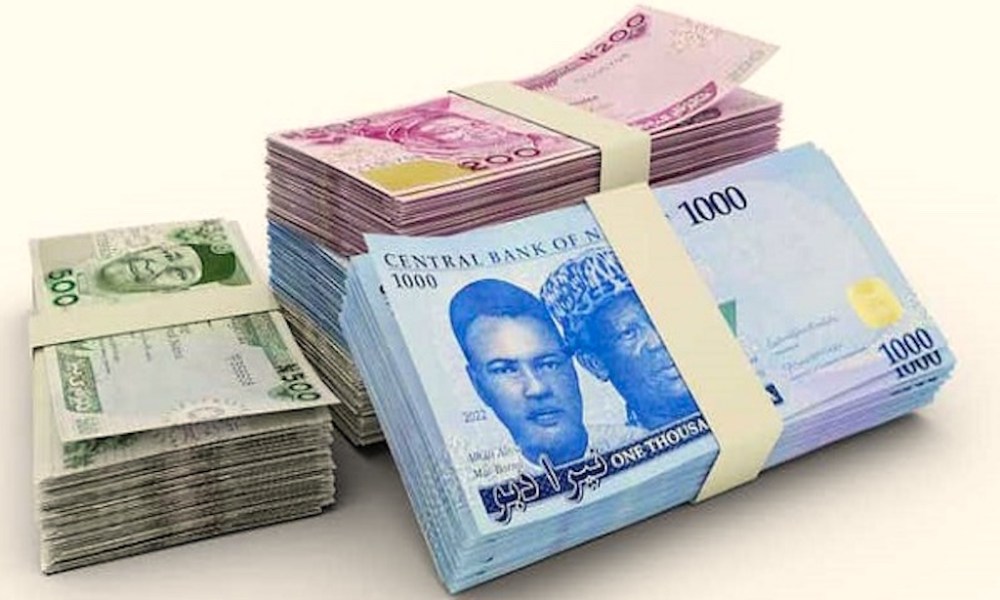🌿 Ruzu Non-Alcoholic Herbal Bitters
Ruzu Non-Alcoholic Herbal Bitters is a natural health supplement specially formulated to:
- ✅ Promote general wellness
- ✅ Detoxify the body
- ✅ Support the treatment of various ailments
Made from a powerful blend of 100% organic and medicinal herbs, Ruzu is completely alcohol-free, making it ideal for:
- 👪 All age groups
- 🌱 Health-conscious individuals
- 🌿 Anyone seeking non-alcoholic herbal remedies
Whether you're looking to boost your vitality, cleanse your system, or support healing the natural way, Ruzu Bitters offers a trusted herbal solution.
Nigeria’s local currency, the naira, has joined the ranks of the world’s worst-performing currencies, according to a report by Bloomberg..
The naira’s dismal performance is mirrored by other African currencies, including the Zambian kwacha and Angolan kwanza, with five African currencies featuring in the bottom 10.
The report cites economic challenges, unstable commodity prices, inflationary pressures, and a lack of dollar liquidity as key factors contributing to the decline.
“The drop in the performance of African currencies is largely due to economic challenges, unstable commodity prices, inflationary pressures, and a lack of dollar liquidity,” Bloomberg noted.
Keonethebe Bosigo, portfolio manager at Mazi Asset Management, attributed the naira’s poor performance to poor currency management and imbalances.
“Oil prices are not the only issue, even though it is a major factor. The real culprits are poor currency management and imbalances,” Bosigo said.
Bosigo emphasized that the naira’s overvaluation and subsequent loss of confidence were due to the currency not being allowed to adjust.
“Oil prices are a factor, but the real issue is that the naira wasn’t allowed to adjust, which led to its overvaluation and a subsequent loss of confidence in the currency,” he added.
Irmgard Erasmus, an economist at Oxford Economics, concurred, stating that the naira faces significant pressure despite reforms aimed at liberalizing the current account.
“The naira remains undervalued relative to its long-term neutral value due to ongoing issues around liquidity and dollar supply,” Erasmus said.
Erasmus attributed the naira’s struggles to declining Brent crude prices, tightening regulations on the banking sector, and risk aversion.
READ ALSO:Naira gains N3, trades N1,541/$1 at official window
“The government’s slow pace of reforms, combined with haphazard monetary policies, continues to keep the currency in undervalued territory,” Erasmus noted.
In his analysis, Erasmus suggested that the naira should be trading closer to N1,100 per dollar in the absence of distortions, compared to the current rate of N1,544/$.
However, he cautioned that without significant policy changes and improved dollar liquidity, the outlook for the naira remains fragile.
Implications for the Nigerian Economy
The naira’s decline has far-reaching implications for Nigeria’s economy:
1. Inflationary pressures: A weakened naira exacerbates inflation, reducing purchasing power and affecting living standards.
2. Reduced investor confidence: Currency instability deters foreign investment, hindering economic growth.
3. Increased import costs: A weaker naira makes imports more expensive, potentially fueling inflation.
4. Economic instability: A struggling currency undermines economic stability, potentially triggering economic downturns.
What Next for the Naira?
To stem the naira’s decline, experts advocate for:
1. Monetary policy reforms
2. Improved dollar liquidity
3. Liberalization of the current account
4. Fiscal discipline
As Nigeria grapples with its currency challenges, the government must implement swift and decisive reforms to stabilize the naira and revitalize the economy.
The post Nigeria’s Naira joins worst-performing currencies globally —Bloomberg appeared first on Latest Nigeria News | Top Stories from Naomisophyblog.
















